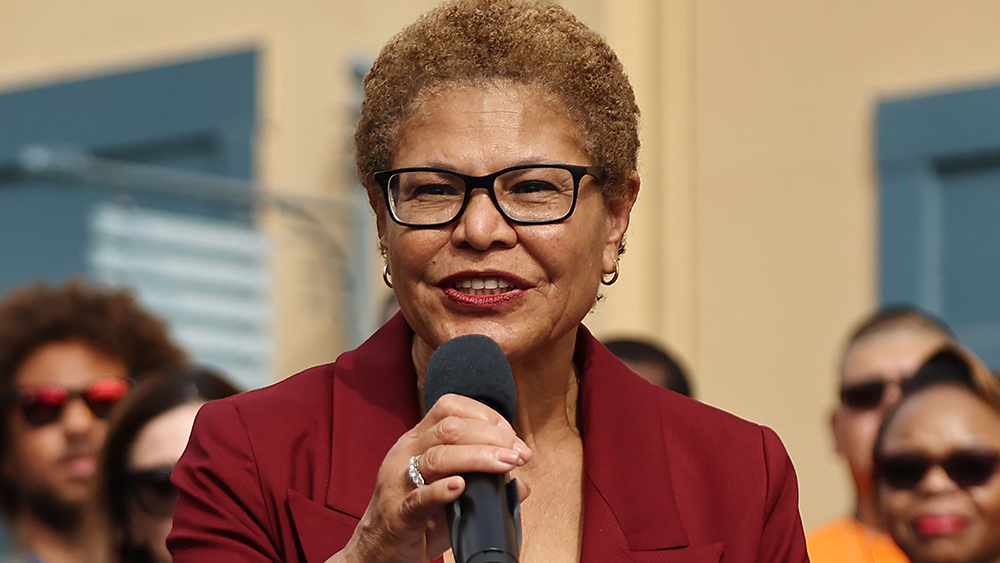 Parler
Parler Gab
Gab
- The Los Angeles City Council preliminarily approved a plan to raise wages for hotel and airport workers to $30/hour by 2028, with gradual increases starting at $22.50/hour in July 2024 and annual $2.50 raises. A final vote is scheduled for May 23, with strong labor union backing but opposition from business groups.
- The policy applies to hotels with 60+ rooms and LAX airport concessions, where current wages are $20.32/hour (hotels) and $19.28/hour (airport workers). Business leaders warn of job losses, hotel closures and canceled investments, including a $250M hotel expansion near Olympic venues.
- Supporters argue higher wages reduce poverty and boost spending, citing past wage hikes that didn’t harm hotels. Opponents claim businesses will cut jobs, raise prices, or automate, citing post-pandemic tourism struggles and reduced international travel.
- L.A.’s wage policies have shifted with economic cycles, from post-2008 austerity to pro-worker reforms in the 2010s. Similar wage hikes in Seattle and NYC faced backlash, but L.A.’s move is bolder, targeting a $25B tourism industry ahead of the 2028 Olympics.
- The May 23 vote could solidify L.A.’s labor advocacy or trigger business cutbacks ahead of the Olympics. Economists warn of reduced hiring or automation, while workers demand fairness amid rising living costs.
Council approves “Olympic Wage” amid fears of industry exodus
The proposed ordinance targets hotels with over 60 rooms and airport concessions at LAX, where workers currently earn $20.32 and $19.28 per hour, respectively, plus existing healthcare subsidies. By 2028, wages would jump 48% for hotel staff and 56% for airport employees—a move hailed by Councilman Curren Price as “respect” for workers “essential to L.A.’s success.” Unions, including Unite Here Local 11, celebrated the “Olympic Wage” as a pandemic-era retaliation against income inequality. Yet business leaders countered that the wage hike could deter Olympic preparations. Mark Davis, CEO of Sun Hill Properties, warned investors might scrap a planned $250 million hotel expansion near the Games’ epicenter, citing the policy as “nonsense” that “will force our project somewhere else.” The Los Angeles Area Chamber of Commerce decried the plan as “unprincipled,” while hotel executives forecast closures and job cuts. Councilwoman Monica Rodriguez raised alarms about cascading layoffs, echoing concerns already plaguing City Hall, where 1,600 staff positions face elimination amid budget shortfalls.Economic concerns clash with equity push
Supporters argue higher wages will bolster spending and reduce poverty, but critics say businesses cannot absorb costs without passing expenses to consumers—or shrinking payrolls. Jessica Durrum of the Los Angeles Alliance for a New Economy, which backs the plan, pointed to past successes: hotels thrived post-2014 wage hikes, she claimed, despite earlier predictions of doom. However, opponents note the current landscape differs sharply, with tourism reeling from post-pandemic recovery delays and President Trump’s border policies cooling international travel. Canada, a top source of visitors, issued advisories discouraging travel to the U.S., exacerbating fears of a volatile tourism economy. The debate also mirrors broader disputes over labor policies. Councilmember John Lee, who opposed the plan, sought to exempt smaller hotels but faced defeat. Meanwhile, amendments to study the policy’s impact on tourism and train workers on human trafficking remain contentious. While supporters frame the policy as a moral imperative, opponents call it delusional idealism. “Do you think employers will magically pay $2 more per hour?” Mark Davis scoffed, emphasizing that “profit-driven” companies must turn a profit to survive.From post-recession policy to 2028 Olympics
L.A.’s minimum wage policies have long been shaped by economic swings and political tides. The 2008 financial crisis saw state budgets slashed, but the 2010s brought a “pro-worker” shift, culminating in 2014’s hotel wage mandate. This current proposal arrives during a similarly polarized era: inflation surged post-pandemic, while recovery efforts lagged behind pre-crisis benchmarks. The Olympic timing underscores political calculus—the Games promise glittering revenue, but businesses fear the wage hike could ironically sabotage preparations. Historically, cities like Seattle and New York also faced backlash when experimenting with high minimum wages, with some businesses retreating. Los Angeles’s vote follows similar pushes in San Francisco and New York City but goes further, targeting tourism—a sector vital to L.A.’s $25 billion industry. The policy also mirrors federal debates: President Joe Biden’s advocacy for 15 federal wage contrasts with conservatives who argue mandated pay stifles employment, especially among low-skilled workers.A gambling stakes vote ahead of Olympics
As L.A. braces for its May 23 final vote, the stakes are existential for industries pinned between Olympic optimism and economic pragmatism. If passed, the policy could cement the city’s reputation as a labor advocate—or trigger austerity measures forcing Big Blue bus tours, celebrity hotels and airport vendors to scale back. For workers like customer service agent Jovan Houston, the increases represent lifelines; for CEOs like Mark Davis, they embody regulatory overreach. Economists warn of unintended consequences: higher wage floors can reduce hiring or force automation, especially in niche sectors like housekeeping. Yet the council’s gamble reflects a broader progressive ethos: prioritize equity, even amid uncertainty. As one hesitant worker-turned-activist put it, “We’re not asking for magic, just fairness.” But whether the magic of economic growth can align with that fairness in L.A.—or anywhere—remains to be seen. Sources for this article include: TheEpochTimes.com LATimes.com FoxLA.comTrump threatens 50% TARIFF on EU imports – but delays it after talks with Brussels
By Laura Harris // Share
House Ways and Means Committee considers universal de minimis ban amid U.S.-China trade war
By Laura Harris // Share
Senate unanimously passes No Tax on Tips Act
By Laura Harris // Share
Los Angeles Mayor Karen Bass signs executive order that seeks to revive Hollywood
By Laura Harris // Share
Israel proposes plan to screen Gaza aid recipients using facial recognition technology
By Laura Harris // Share
Home Depot braces for downturn in consumer spending after reporting slight sales increase in Q2
By Laura Harris // Share
Governments continue to obscure COVID-19 vaccine data amid rising concerns over excess deaths
By patricklewis // Share
Tech giant Microsoft backs EXTINCTION with its support of carbon capture programs
By ramontomeydw // Share
Germany to resume arms exports to Israel despite repeated ceasefire violations
By isabelle // Share










